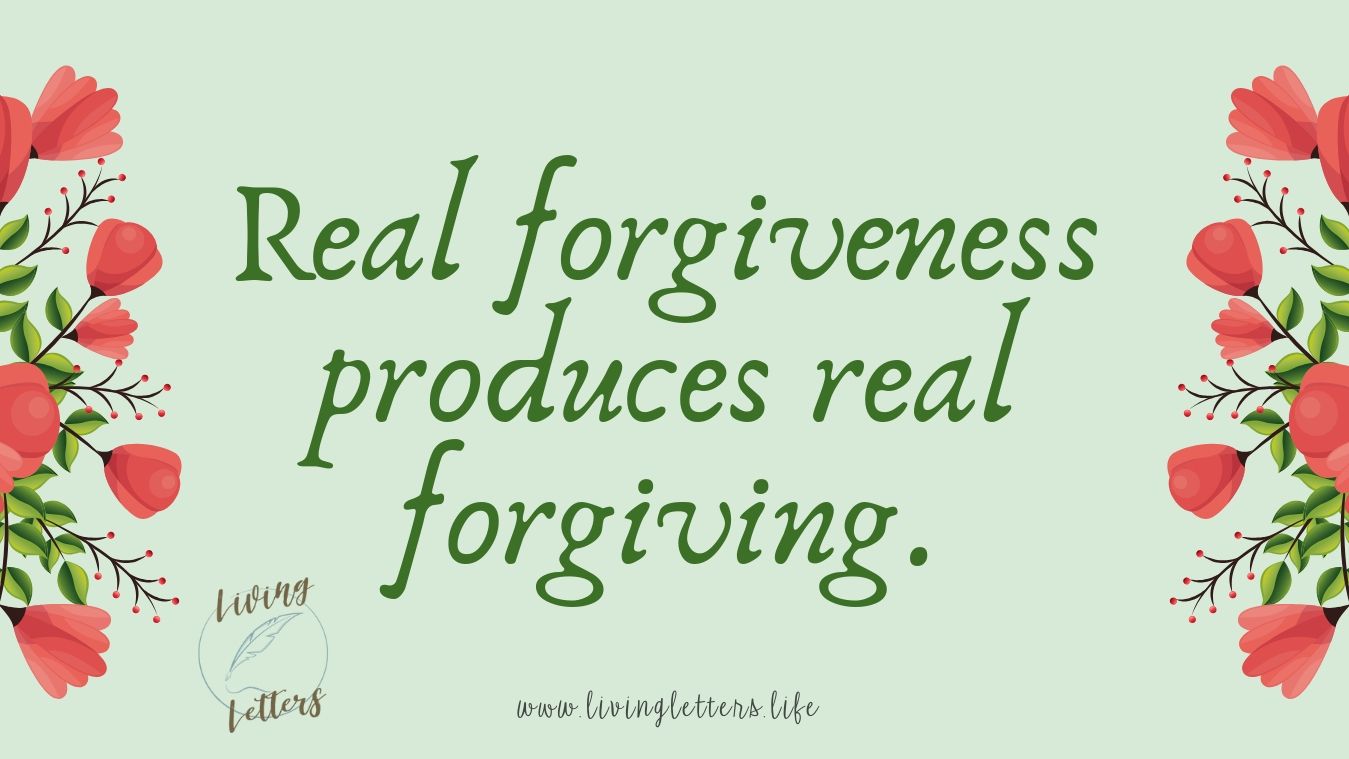
As a very young child during vacation Bible school, I had to memorize Romans 6:23. That's the first time I remember considering what sin was. By the definition given that day, I decided in my child mind that up to that moment I had not sinned—and I vowed not to sin for the rest of my life. I understood that Jesus had to die for sin, but I believed that I was helping Him by having never sinned.
In my thinking, I had not intentionally done anything so wrong that it could qualify as sin. I knew that I had disobeyed my parents at times; but I had tried to obey them, and I bore the punishments they dished out—so that could not be sin. My theology became a bit more enlightened as I got older, but the damage was done. I was certain that we should try to do right on our own strength, and I began to heavily measure my actions by the opinions of others. I tried hard to be kind and discreet in how I treated others. I tried hard to love God and do what pleased Him.
“ I began to heavily measure my actions by the opinions of others ”
By my own standards I was doing pretty well—better than some others around me! My friends and I were a good lot. Like Jenni said in her story in the last blog, “Although I realized that Christ had died for sinners, I believed I probably wasn't one of those who really needed Him to die for me.”
“ “Although I realized that Christ had died for sinners, I believed I probably wasn't one of those who really needed Him to die for me.” ”
With this sort of mindset, forgiveness becomes relatively unimportant—I don't need it from God because I am already a good person, I try hard, etc. However, it's hard to go through life without getting hurt at some point. Eventually it will happen, and in that moment, these preconceived notions will come back to haunt. If I don't think I need God's forgiveness, how will I ever be able to extend forgiveness to anyone else?
“ If I don't think I need God's forgiveness, how will I ever be able to extend forgiveness to anyone else? ”
A book title took me by surprise in my own forgiveness awakening: When People Are Big and God Is Small by Ed Welch (P&R Publishing, Phillipsburg, NJ 1997). That title described me. I was huge in my own mind. It was serious to wound me. God was relatively small, since I was the judge and the jury and preferred to decide the outcome.
God loves those who bear His name, however crazy they may be, and putting that book title in my face was the first of many ways He would teach me about the right response to hurt received from others. Romans 12:9-21 is an excellent description of forgiveness despite the fact that it doesn't use the actual word. In the ESV, that section is titled, “Marks of the True Christian.” The summation of those verses appears in verse 21: “Do not be overcome by evil, but overcome evil with good.”
“ “Do not be overcome by evil, but overcome evil with good.” ”
Perhaps the most “humanly natural” reaction to dealing with a hurtful situation is to retaliate. If I choose to retaliate instead of forgive, am I not being overcome with evil? Does this help the situation or make it worse? Definitely the problem is enlarged and goes unresolved. Paul's advice in Romans (vs. 9-10): “Abhor what is evil: hold fast to what is good…Outdo one another in showing honor.” These are the times our eyes must be fixed on Jesus and seeking Him.
To be sure there are times when to protect others—like our children or even ourselves—we must set boundaries from unrepentant individuals who continuously cause harm (as Jenni and Rich had to do to with Rich's parents). God has not left us without hope of reconciliation even in those difficult situations. Just as we as sinners have been reconciled to God through Jesus, we must extend that mercy to those around us as often as possible. For those to whom we may have to distance ourselves from at times, these words instruct us of what our attitude should be: “Bless those who persecute you; bless and do not curse them” (v. 15).
“ “Bless those who persecute you; bless and do not curse them” ”
To bless—what exactly does that entail? These days that word is used secularly quite often merely to wish good things for another. But biblically it means to ask God to look favorably on someone. I once heard a pastor say that means to pray for the other to flourish. Wow! That's not usually the sentiment that crosses my mind when I am offended; but it is what Jesus did for those who mocked Him and nailed Him to a cross. “Father, forgive them, for they know not what they do” (Luke 23:34).
This is the thing. Do those who hurt us often truly know what they are doing? Do I stop to think before I say or do something that might be offending someone else? Aren't there things that prick us more than others because of who we are and what we have been through? Are we gracious to others when we don't know what provoked an offensive remark? How quick we often are to open our mouths when it would be far better to keep quiet. How often we judge wrongly against another and hold them in contempt. Then there are the times that people just don't change their behavior and wrong us again and again. Do we struggle with forgiving numerous times, or do we demand the other person live up to our expectations? Do we give ourselves to mercy when we realize someone is struggling?
Verse 18 says, “If possible, so far as it depends on you, live peaceably with all.” I have found the next verse to be so helpful when I think I know best what God should do when someone comes against me. “Beloved,” [I like how Paul starts with that] “never avenge yourselves, but leave it to the wrath of God, for it is written, ‘Vengeance is mine, I will repay, says the Lord'” (vs. 18-19).
“ “If possible, so far as it depends on you, live peaceably with all.” ”
I've experienced God's bountiful protection when I left the vengeance to Him. I was blessed beyond all I had imagined and sometimes the person persecuting me was removed from my life or became my friend. Imagine that! It was not the answer to my initial prayer at all, but the way I wanted it would not have brought God any glory. God receives all the glory when forgiveness is practiced—because forgiveness comes from Him. We can't do it on our own.
Janie Cheaney writes in her column in World Magazine (Sept. 14, 2019) about the beginning of slavery in North America and its lingering effects on our culture. She writes that many of the proposed answers to racism involve money. She counters, “But the problem is spiritual not material, and so is the solution: forgiveness.”
“Is forgiveness fair?” she asks. “No, but Someone who was owed a much greater debt showed us that forgiveness is the only way out of the bondage of sin.” We who have been forgiven a huge debt against God Himself, cannot afford to withhold forgiveness from anyone else who has a much lesser debt against us. We have received a tremendous forgiveness. We should be reflecting that to everyone we meet. That will only happen when we keep our eyes fastened on Jesus so that when others look into our eyes, all they see is Jesus. Real forgiveness produces real forgiving.
“ Real forgiveness produces real forgiving. ”
* * *
Follow Living Letters Blog next on Sept. 20 to learn about Stephen Ministry—and how that organization is equipping congregations to practice mercy and forgiveness by providing quality, confidential, and Christ-centered care to the hurting.


Send Me A Message